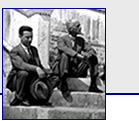John F. Fulton, MD
1899-1960
John Farquhar Fulton, the son of Edith (Wheaton) Fulton and John Farquhar, MD was born in St. Paul, Minnesota, on November 1, 1899.
After graduating from St. Paul High School at 16, Fulton worked for some time with a surveying team on the west coast, before he entered the University of Minnesota in 1917. During World War I he served with the United States Army. He applied to Harvard and was admitted, graduating magna cum laude in 1921.
In 1921 Fulton went to Magdalen College, Oxford, as a Rhodes Scholar. Fulton graduated as a B.A. from Oxford with honors in physiology in 1923. His subsequent appointment as a university demonstrator in physiology permitted him to work in Sir Charles Scott Sherrington's (1857-1952) laboratory.
Fulton was conferred Ph.D. in 1925 with a thesis containing 700 pages and over a thousand references. This unusually large doctoral work was published in 1927. The following year he graduated in medicine magna cum laude from Harvard University. He then worked for a period on the neurosurgical service of Harvey Williams Cushing (1869-1939), before returning to Oxford to reassume a fellowship at Magdalen College. While there, he was called to Yale University as a Sterling Professor of Physiology.
After the outbreak of World War II, Fulton became chairman of the Sub-Committee on Decompression Sickness. His Yale laboratory was given over to research in aviation medicine; and to meet the needs of the burgeoning literature in that field, Fulton edited a bibliography of aviation medicine. However, the tremendous pressure of work during the war took its toll on Fulton's health. In 1951 he resigned as Sterling Professor of Physiology to take up the newly created post of Sterling Professor of the History of Medicine. This may have been the fulfilment of a wish dating back to his student time, when he had been strongly influenced by professor Wallace Notestein (1878-1969), a specialist in English history, and worked part-time as a stack boy in the St. Paul Public Library
Fulton participated in the first clinical trials of penicillin in the United States. In 1939 Howard Florey (1898-1968) and Ernest Chain (1906-1979) had succeeded in the extracting and purifying penicillin, and demonstrated its therapeutic properties. In 1941 Florey and his associate Dr. Norman Heatley, came to the United States to explore the possibility of mass production of penicillin in the United States, then still not engaged in the war. When Florey returned to Oxford in September 1941, he turned over the clinical testing to Dr. Lewis Weed (1886-1952).
Sir Alexander Fleming (1881-1955), Sir Ernest Boris Chain and Lord Howard Walter Florey shared the 1945 Nobel Prize for Physiology or Medicine "for the discovery of penicillin and its curative effects in various infectious diseases."
The first patient to be treated was Mrs. Ogden Miller, the 33-year old wife of Yale's athletic director. Having developed a streptococcal septicaemia after a miscarriage, she was a patient in Yale Medical Center where John Fulton was also a patient, having contracted coccidiomycosis while visiting military installations in the San Joaquin Valley as a member of the Committee on Aviation Medicine. Her physician, Dr. John Bumstead, was also Fulton's physician. He prevailed upon Fulton to obtain some of the new drug for Mrs. Miller. On Saturday, March 14, 1942, after four weeks of 103º to 106º temperatures, she received her first dose of penicillin.
In his diary Fulton noted the change on the patient's course after administration of penicillin:
It arrived air-mail Saturday morning and a small trial dose was given at 3:30 Saturday afternoon. This was tolerated well so they gave larger doses every four hours. By 9 A.M. Sunday her temperature was normal for the first time in four weeks and has stayed normal until this writing (noon Monday). She has eaten several enormous meals – also for the first time in four weeks. It really looks as though Florey had made a ten-strike of the first water, and I am glad that we have had opportunity to make the first clinical trial of the American extract here.
The production of penicillin was so successful in the United States that, by D-Day in Normandy, June 6, 1944, there was sufficient penicillin to treat all severe casualties, both British and American.
Just as was the case with physiology, he immediately attracted students from all over the world. As a result of his work, the Yale Historical Library was established to house the hitherto separate collections of Harvey Cushing, John Fulton, and Arnold Carl Klebs (1870-1943).
Fulton died suddenly at his home on May 29, 1960.
More information about John Fulton is also available from the Medical Historical Library at the Cushing/Whitney Medical Library and PubMed.
|







